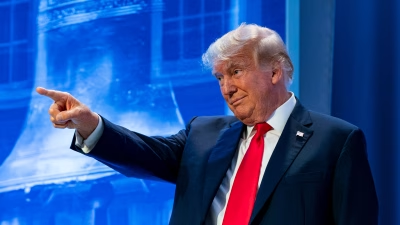In September, the New York Court of Appeals raised critical questions about whether the civil fraud case against Donald Trump truly warrants labeling him a “felon.” The panel’s skepticism over the Attorney General’s (AG) use of an obscure law may significantly influence the outcome.
NY Appeals Court Questions AG’s Motives
A recent video from the New York Court of Appeals hearing surfaced, showing justices grilling the Attorney General’s office. The tough questioning suggests that the prosecution may have overstepped. Associate Justice David Friedman asked whether there were any precedents for using the specific law, Executive Law 6312, in this manner. He implied that this could be more of a “commercial dispute between private actors” than a case of significant public harm.
WATCH:
The Law in Question
Executive Law 6312 is usually invoked to protect consumers and the public from fraud. However, the Trump case doesn’t fit the usual mold. Justice Peter Moulton voiced concerns about “mission creep,” questioning whether this law had “morphed into something it wasn’t meant to do.” In essence, the court questioned whether this law was meant to intervene in private transactions where both parties were highly sophisticated and no consumer was harmed.
The Fine: Disproportionate?
Another key issue was the “immense penalty” Trump faces—nearly half a billion dollars. The court raised concerns about how such a steep penalty could be justified when, as Trump’s defense argued, “no one lost any money.” The justices wondered aloud whether such a hefty fine was appropriate in a case where the parties left the transactions “happy.”
Is Trump a Felon?
In New York, a person is technically a felon once they’ve been found guilty, but the formal consequences come after sentencing. Trump’s case, however, is civil, not criminal. As Politico reported, “a New York appeals court sharply questioned the legitimacy of the fraud case,” suggesting that the term “felon” might not be appropriate here.
What’s Next?
The appeal could drastically reshape Trump’s legal future. If the court finds that the AG overreached, the case may be tossed. This would remove a significant legal burden from Trump as he faces multiple other legal battles heading into the 2024 election.
In short, the court’s skepticism may signal that Trump’s fraud case is on shaky legal ground, leaving the question of his “felon” status in limbo.
